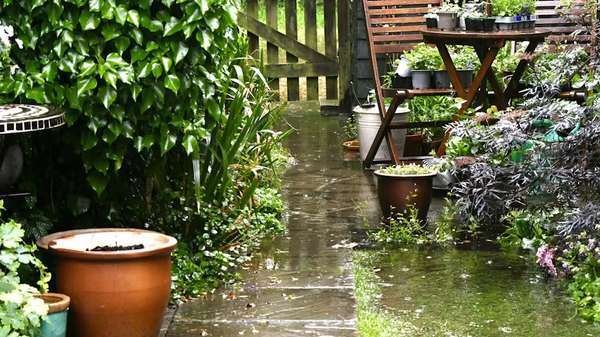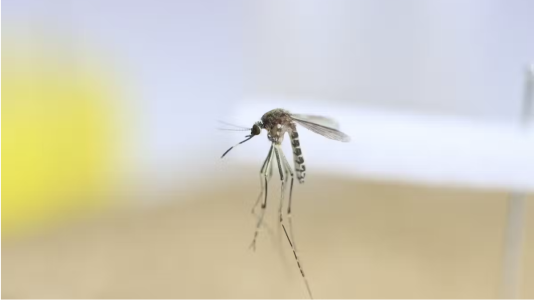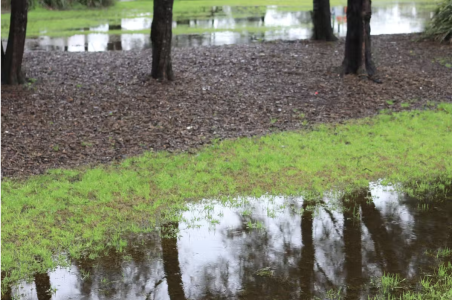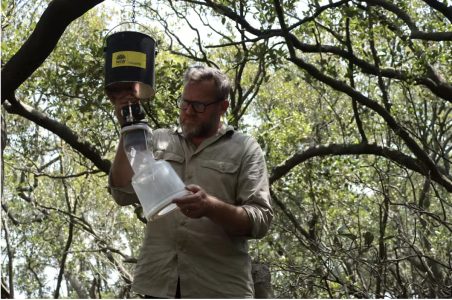
Mosquito bites are annoying. They can also have deadly consequences. So what diseases do mosquitoes in Australia carry?
And with warmer weather on its way and rain expected to continue, how can you prepare for the coming mosquito season?
Mosquitoes are deadliest animal
Mosquitoes kill more people than any other animal. Worldwide, more than half a million people die each year from mosquito bites that transmit malaria parasites.
Australia is fortunate to be free of major outbreaks of malaria, though occasional cases do occur.
The most common mosquito-borne disease in Australia is caused by Ross River virus. Around 5,000 cases are reported each year and, while never fatal, the illness can be severely debilitating. Symptoms include fever, rash, joint pain and fatigue.

Murray Valley encephalitis virus is responsible for very rare but potentially fatal disease. It’s detected most years in northern Australia.
There has been a resurgence of the virus in southeastern parts of Australia following flooding in recent years. Mosquitoes pick up the virus from waterbirds throughout the Murray Darling Basin before they pass on the pathogen to people. Mosquito and waterbird populations both boom after flooding.
Mosquitoes in some coastal areas of Victoria can also pass on the flesh-eating bacteria that can cause Buruli ulcer.
What about Japanese encephalitis?
Japanese encephalitis virus can cause fever, headaches, vomiting and, in rare cases, death.
Over the summer of 2021-22, there were 45 cases of Japanese encephalitis in southeastern Australia. This virus was never expected to spread so widely. In some parts of Australia, people died due to mosquito bites for the first time in around 50 years.
Scientists and health authorities thought Japanese encephalitis virus would transmit in a similar way to the closely related Murray Valley encephalitis virus, with outbreaks typically occurring after flooding that provided ideal conditions for both mosquitoes and the waterbirds carrying the virus.
But we now know pigs – especially feral pigs – are in the mix too, along with a range of other animals.
With gaps in our understanding of what drives local transmission, predictions of Japanese encephalitis activity are now proving to be less reliable. This makes it hard to work out the threat it may pose this summer.
Last summer, despite the lack of any substantial rainfall, the virus turned up even though mosquito (and waterbird) populations were generally low.
The virus also wasn’t limited to those areas where we’d expect to see it. There is growing evidence it’s made its way to the east coast, with the virus detected in the suburbs of Brisbane.

How will the weather impact mosquitoes this season?
Like all insects, mosquitoes thrive in warmer weather. But they also need water.
It doesn’t really matter if it’s a “wet” or “dry” summer, mosquitoes are always active. But sometimes there are more – lots more.
In most parts of Australia, there is currently no shortage of water. Some regions have had record rainfall this winter, with more on the way.
The Bureau of Meteorology is predicting above-average rainfall through to the end of the year. Once the weather warms up, it could be a “buzzy” start to mosquito season.
This doesn’t mean outbreaks of mosquito-borne disease are inevitable. But we need to be alert to the risks and how best to protect ourselves and family.

Monitoring mozzies
More rain means a greater risk of mosquito-borne disease. But outbreaks aren’t easy to predict, so surveillance is critical.
Australian state and territory health authorities undertake monitoring of mosquitoes and the pathogens they carry each year. The objective is to provide an early warning of elevated risk of mosquito-borne diseases. This may be due to increased mosquito activity or the detection of mosquito-borne pathogens.
Given the uncertainty around Japanese encephalitis, it’s also important to monitor locations where the virus has not yet been detected.
How to stay safe this spring and summer
There’s a lot you can do to protect yourself and family from mosquito bites and mosquito-borne disease.
A vaccine is available for those at risk of Japanese encephalitis. See your local health professional for advice on accessing the vaccine.
But there aren’t vaccines for the other local mosquito-borne diseases. Nor are there any specific treatments for these diseases. So preventing mosquito bites is the best way to protect yourself.
If you’re outdoors when mosquitoes are active, cover up with long pants, a long-sleeved shirt and covered shoes. Apply an insect repellent containing diethyltoluamide, picaridin, or oil of lemon eucalyptus to all exposed skin.
Skip the stickers, patches and wristbands, as the evidence shows they aren’t a reliable way to prevent bites.
Keep your property free of mosquito breeding grounds, too. Mosquitoes can lay eggs in any container that fills with water: a plant saucer, a bird bath, discarded plastic buckets, bottles or tins. Tip them out each week, cover them up or throw them away.
This article is republished from The Conversation under a Creative Commons license. Read the original article.







